Dialogue in Pirate Stories
£3.00
Activities in this lesson include exploring the use of dialogue through the pirate genre, how to write reported and direct speech using the correct punctuation, completing a true/false task that summarises all the features of reported and direct speech and identifying whether an example is reported or direct speech.
There is a five-minute evidence-based CPD activity at the end of this lesson which will develop classroom teachers’ skill set. This CPD consists of a research extract on peer assessment with a five-minute activity based on this extract.
Description
These evidence-based learning (EBL) lessons are based on classroom practice that has been proven, by research, to maximise thinking, learning and attainment. From an extensive review of educational research, we identified the eight key classroom thinking and learning skills that were common across these research papers. We named these eight key skills “EBL skills”.
EBL skills have been proven by research to maximise learning because they combine the most productive thinking skills with the most effective learning behaviours. Each of our evidence-based learning lessons uses the English curriculum as a framework through which the eight EBL skills are delivered.
Teachers also have the opportunity to add to their own skill set or refresh their existing skills with our five-minute CPD activity, based on one of the EBL skills used in this lesson.
The skills in bold below are the EBL skills developed in this Pirate lesson. Click on each skill to learn more about that skill.
- Collaboration
- Thinking Skills
- Peer Assessment
- Peer Teaching
- Self-Assessment
- Metacognition
- Self-Regulation
- Independent Learning
1 review for Dialogue in Pirate Stories
Only logged in customers who have purchased this product may leave a review.
Related products
-


A Nice and a Nasty Pirate
£3.00 Add to basket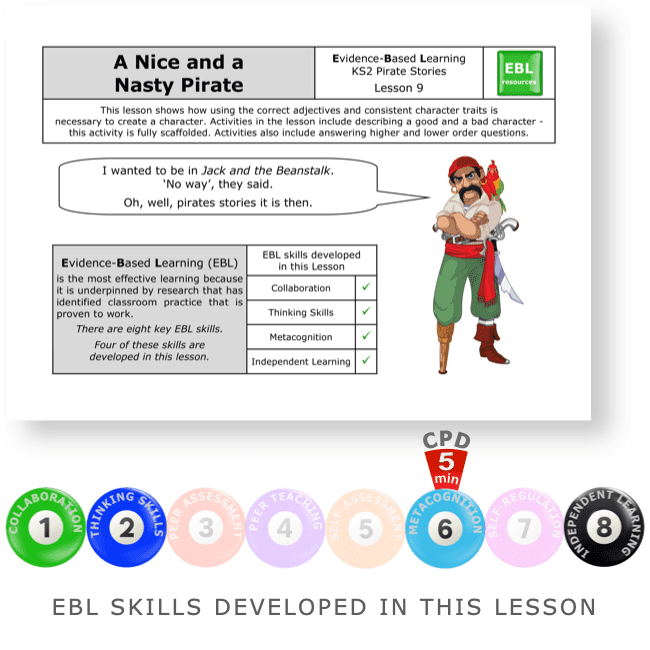 £3.00Add to basket
£3.00Add to basketThis lesson shows how using the correct adjectives and consistent character traits is necessary to create a character. Activities in the lesson include describing a good and a bad character – this activity is fully scaffolded. Activities also include answering higher and lower order questions.
There is a five-minute evidence-based CPD activity at the end of this lesson which will develop classroom teachers’ skill set. This CPD consists of a research extract on metacognition with a five-minute activity based on this extract.
VIEW -


Captain Black and the Pronoun
£3.00 Add to basket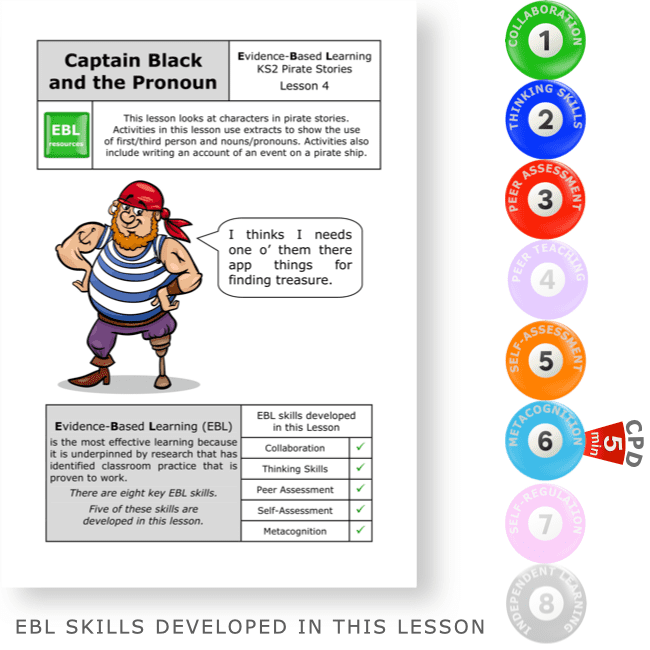 £3.00Add to basket
£3.00Add to basketThis lesson looks at characters in pirate stories. Activities in this lesson use extracts to show the use of first/third person and nouns/pronouns. Activities also include writing an account of an event on a pirate ship.
There is a five-minute evidence-based CPD activity at the end of this lesson which will develop classroom teachers’ skill set. This CPD consists of a research extract on metacognition with a five-minute activity based on this extract.
VIEW -


Y6 Science Fiction is Alien to me
£3.00 Add to basket £3.00Add to basket
£3.00Add to basketKS2 National Curriculum:
✓ Structuring narrative writing; using descriptive language and varied sentence structures.
Activities in this lesson include a reminder of the features of science fiction stories, a step-by-step guide to structuring a science fiction story (which uses guided questions), using adjectival phrases and finally, writing a science fiction story.
There is a five-minute evidence-based CPD activity at the end of this lesson which will develop classroom teachers’ skill set. This CPD consists of a research extract on peer assessment with a five-minute activity based on this extract.
VIEW -
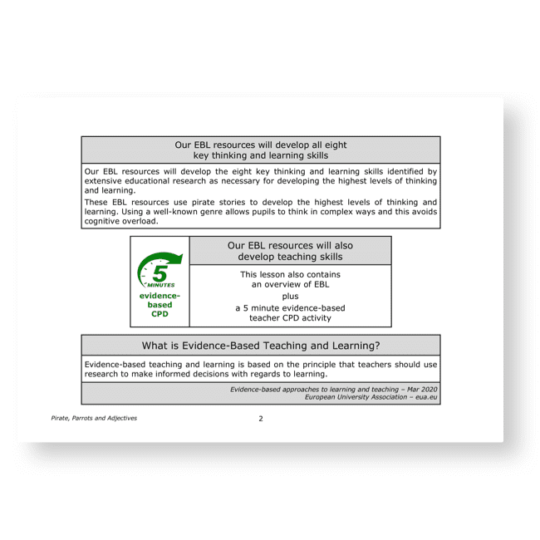

Pirates, Parrots and Adjectives
£3.00 Add to basket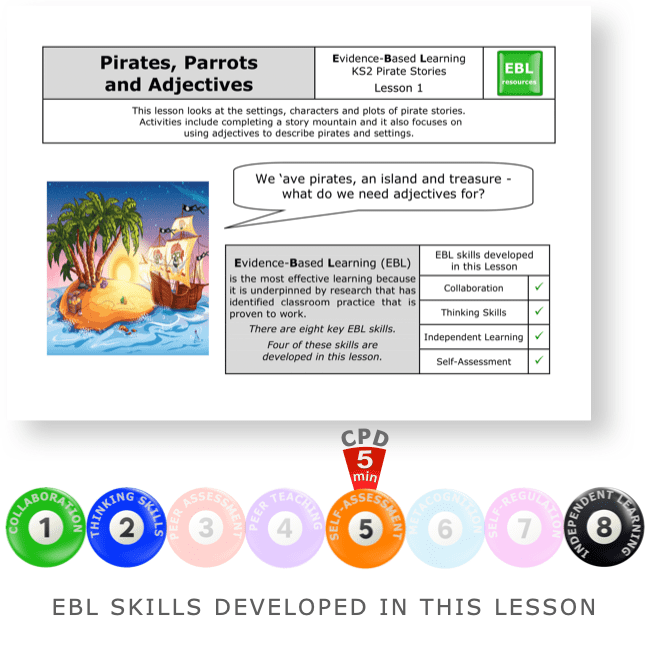 £3.00Add to basket
£3.00Add to basketThis lesson looks at the settings, characters and plots of pirate stories. Activities include completing a story mountain and it also focuses on using adjectives to describe pirates and settings.
There is a five-minute evidence-based CPD activity at the end of this lesson which will develop classroom teachers’ skill set. This CPD consists of a research extract on self-assessment with a five-minute activity based on this extract.
VIEW

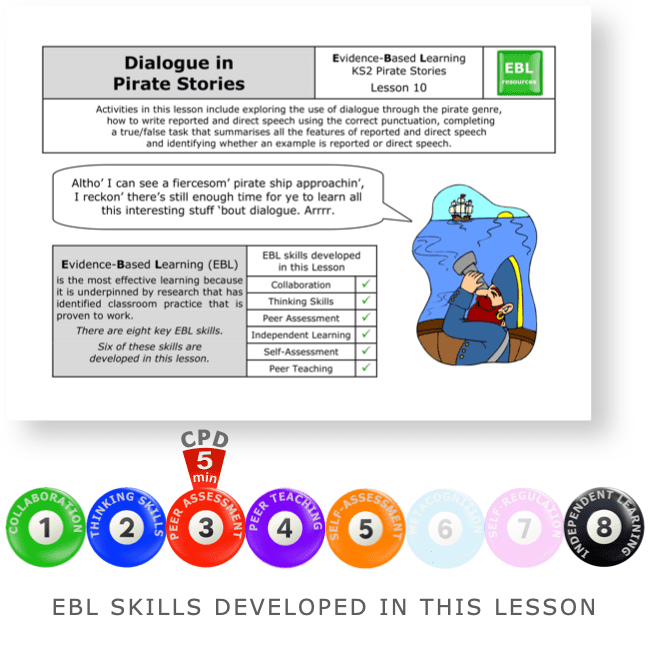
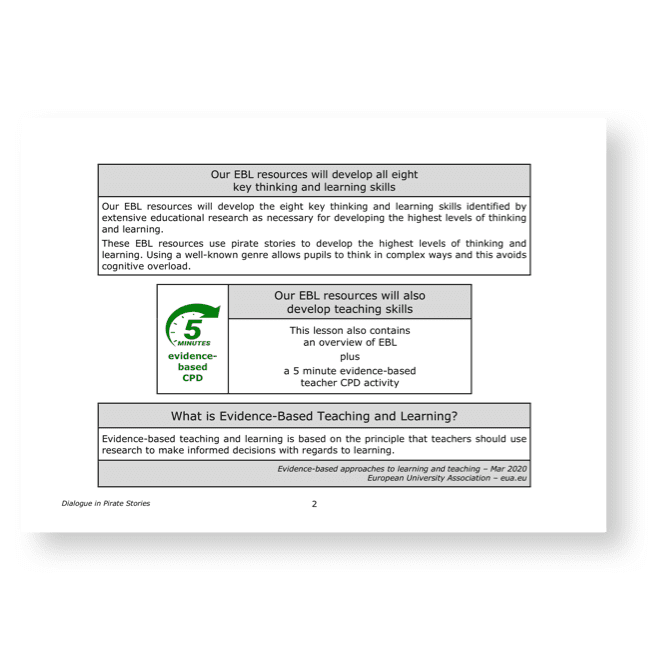
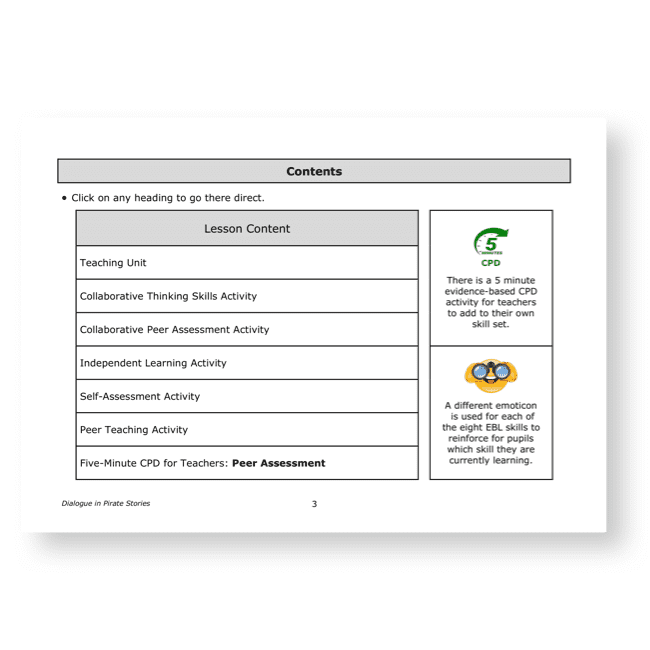
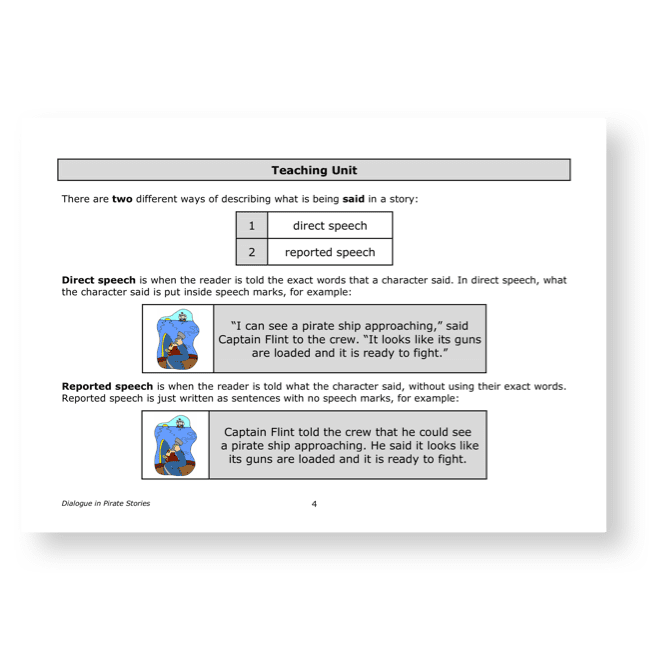


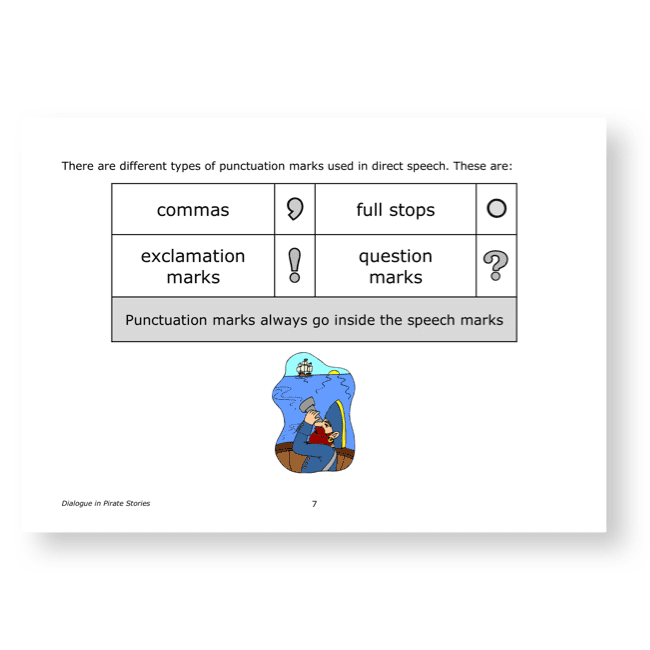
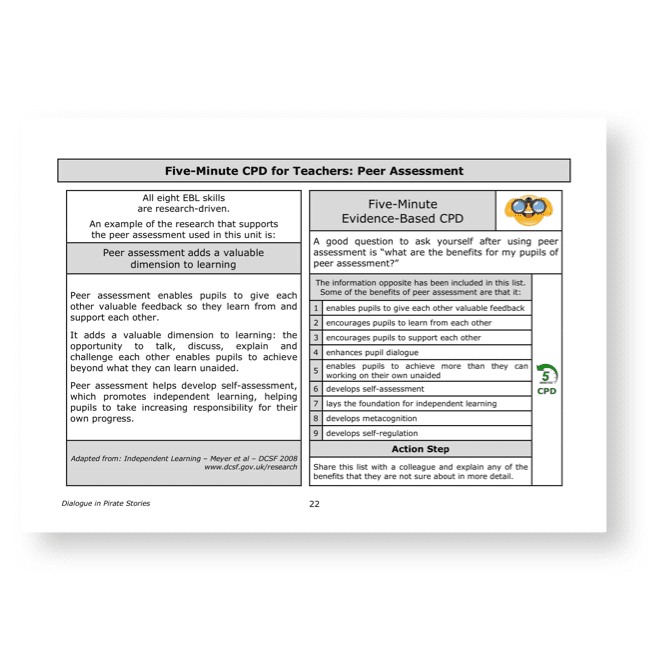
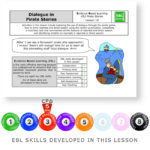
Philipem (verified owner) –
We asked a.i. to review this lesson. This is what it said:
⭐⭐⭐⭐⭐ An Engaging Resource for Teaching Dialogue Skills
I recently discovered a brilliant KS2 resource for teaching dialogue in a captivating way while developing key evidence-based learning skills. It’s called “Dialogue in Pirate Stories” and uses entertaining pirate tales to teach vital literacy and thinking abilities.
This resource focuses on understanding the difference between direct speech and reported speech. Activities look at the correct punctuation to use for both. There are true/false tasks to check understanding of all the features of direct and reported speech.
Students also have to identify examples as either direct or reported speech. This encourages them to apply their knowledge. Collaborative activities allow pupils to learn from peer discussion.
There are self and peer assessment activities too which build vital skills for independent learning. I especially liked the five-minute evidence-based CPD for teachers on peer assessment. This summarises research on the benefits of peer assessment in a digestible way.
Overall, “Dialogue in Pirate Stories” teaches key literacy skills around speech while developing essential evidence-based abilities. The pirate theme engages student interest. I would strongly recommend it to bring speaking and listening to life in an entertaining fashion. This resource deserves 5 stars for its creative blend of vital dialogue and thinking skills.